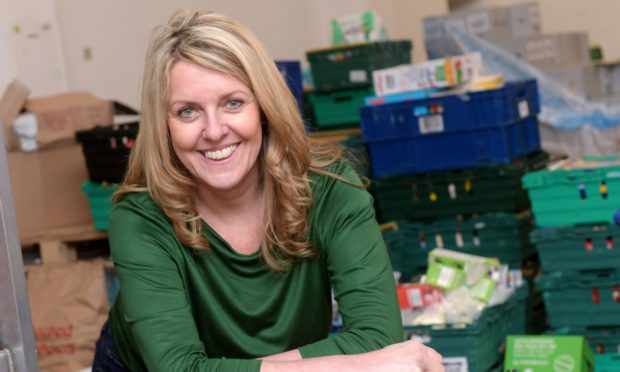A widening gulf between those on high and low incomes has opened up across Grampian and the Highlands and Islands during the Covid-19 pandemic, new figures suggest.
An analysis report published by debt specialist Carrington Dean shows that between April and September there was a 40% increase in those in well-paid, full-time employment using debt arrangements, alongside a 20% rise in disposable income.
The report also highlighted an 8% fall in debt among those demographics.
A growth in available income for those on high-paying, full-time jobs is understood to be due to a sharp rise in the use of debt arrangements to protect assets such homes and cars.
Grampian is the region with the second highest proportion of people in a strong financial position in Scotland, after Edinburgh.
It comes as food banks and support initiatives in the north-east and Highlands are reporting a drastic increase in people using their services – with one seeing 300% increase in food parcel deliveries.
Many are also observing a rise users from low-paid employment, young families and those who have been made redundant during the pandemic.
Lisa Duthie, chief executive of Community Food Initiatives North East (Cfine), said her organisation, working alongside partner charities, has delivered 41,955 food parcels between April and September – more than double the total amount delivered over 2019.
The service also supplied 755 tonnes of food to 297 community food charities over six months, which was a 278% increase on what Cfine anticipated for the whole of 2020.
She said: “About half those people requesting food aid have done so for the first time and other organisations are seeing the same.
“The numbers are really indicative of people’s changing circumstances and we still expect more to come – it’s a big deal for people and takes a lot of courage to ask for support.
“What we’re seeing now is people who have lost their jobs, but there is also a lot of people who are low paid but in work and people coming from the hospitality sector.
“Aberdeen has been hit so hard by the second lockdown and the oil and gas sector impact on top of Covid-19. I really feel for people.
“But it is those who were already experiencing hardship that have been hit the hardest throughout the pandemic, it’s really amplified their position.”
Care Hub Aberdeen said their food and clothing service has seen numbers rise from an average of 70 people per night, to around 110 since June.
Michelle Houghton, who runs the service, said: “Some nights we’re seeing 130 people, which speaks volumes about the problem here.
“The increase has not solely come from people in work, but we have definitely seen an increase in people in a family type setting and others who have lost their job during the last few months.”
Lorna Dempster, organiser of the Blythswood Care food bank based in Inverness, said she has witnessed marked increase in those on the furlough scheme using the service since March.
She added that she anticipates a rise in use while people wait for Universal Credit to be processed as the UK Government scheme ends in October.
Ms Dempster said: “We’re certainly starting to see an increase in numbers here of people using the service.
“What we’re largely seeing right now are people who’ve been furloughed and are on 80% of their income, but are already on a low income.
“We’re also seeing is some families who are not quite at the threshold to be accepted for Universal Credit and have had a cut on their salary and need extra support.”
